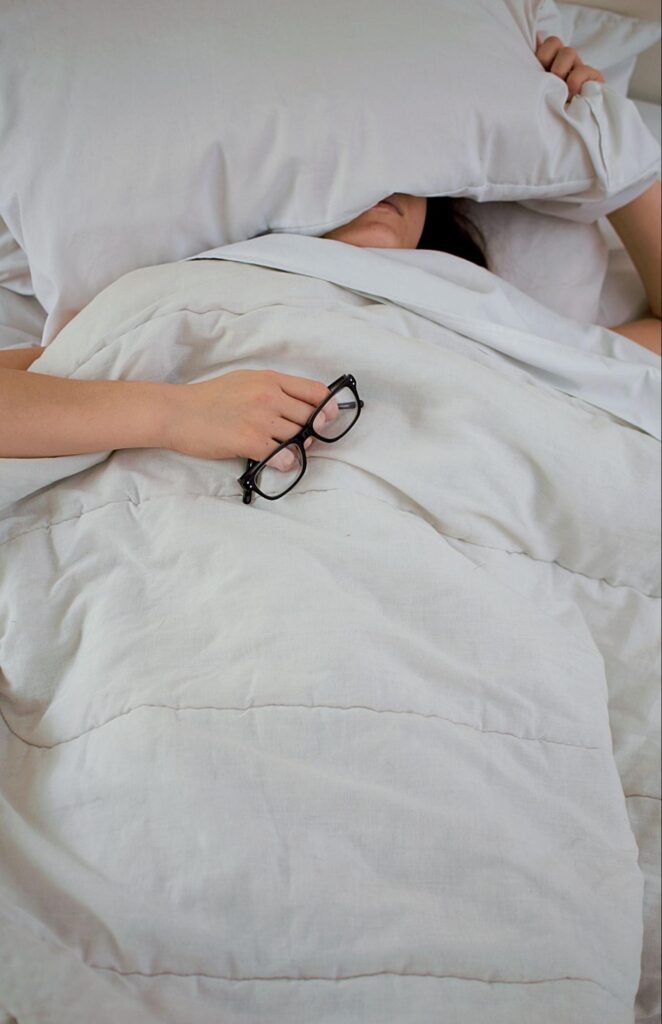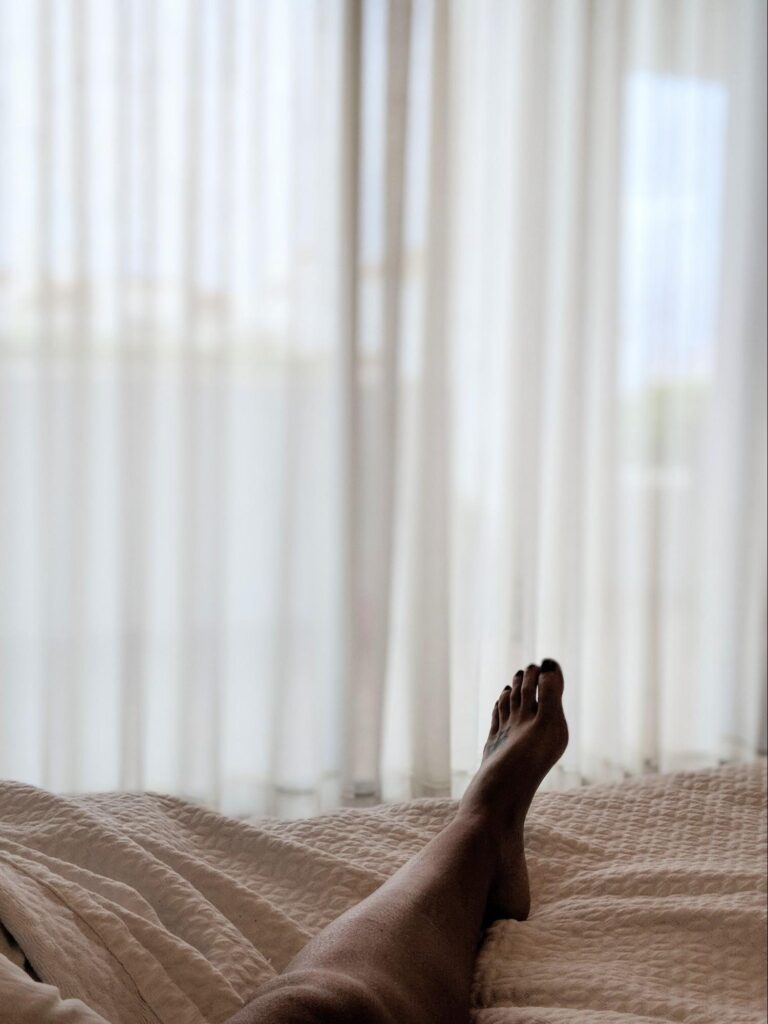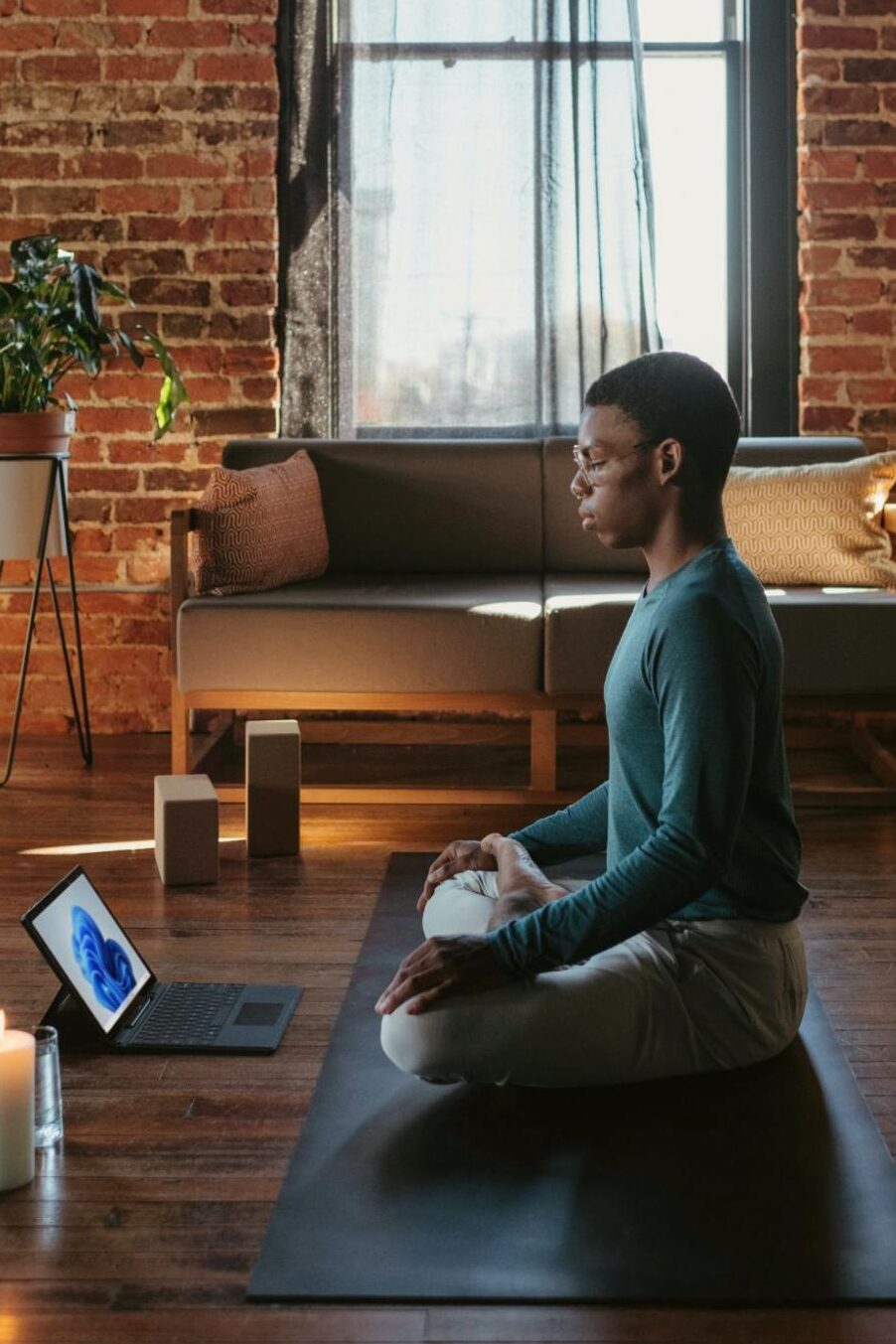How to Get a Better Night’s Sleep: Tips for Managing Sleep Disorders
Sleep is an essential component of our overall health and well-being, but for many people, getting a good night’s sleep can be a challenge. Sleep disorders are a common problem that affects millions of people worldwide, and they can have a significant impact on our daily lives. They can cause a range of symptoms, including difficulty falling or staying asleep, waking up too early, or feeling tired and unrefreshed upon waking.
Causes of Sleep Disorders
Stress and anxiety

(Photo by Elisa Ventur on Unsplash)
Stress and anxiety can make it difficult to fall asleep and stay asleep. These mental health issues can cause your mind to race at night, preventing you from feeling calm and relaxed. When you’re stressed or anxious, your body produces more cortisol, a hormone that can interfere with sleep. The more cortisol in your system, the more difficult it can be to fall asleep or stay asleep throughout the night.
People with anxiety disorders often experience insomnia, which is a common sleep disorder that makes it hard to fall asleep or stay asleep throughout the night. Insomnia can also cause you to wake up too early in the morning or feel unrested when you wake up. Anxiety-related insomnia can be caused by worries about everyday life, specific events or problems, or even just the fear of not being able to fall asleep.
Medical conditions

(Photo by Isabella Fischer on Unsplash)
Medical conditions like sleep apnea, restless leg syndrome, and chronic pain can all contribute to sleep disorders. Sleep apnea is a common sleep disorder that causes breathing to stop and start repeatedly throughout the night, which can disrupt your sleep and lead to daytime fatigue. People with sleep apnea often snore loudly and wake up gasping for air. If left untreated, sleep apnea can increase the risk of high blood pressure, heart attack, and stroke.

(Photo by Georgie Cobbs on Unsplash)
Restless leg syndrome (RLS) is a condition that causes an uncomfortable sensation in the legs and an irresistible urge to move them, which can make it difficult to fall asleep. The symptoms of restless leg syndrome are usually worse at night and can be caused by a variety of factors, including iron deficiency, pregnancy, and certain medications.

(Photo by Sasun Bughdaryan on Unsplash)
Chronic pain can also interfere with sleep, as it can be difficult to find a comfortable position that allows you to sleep through the night. Chronic pain can be caused by a variety of factors, including arthritis, fibromyalgia, and back pain. Some individuals have found relief from chronic pain by exploring Chinese Medicine treatments such as acupuncture and therapeutic exercises, which have been used to address chronic pain and promote better sleep.
Lifestyle habits
Poor sleep hygiene, such as drinking caffeine or alcohol before bed, using electronic devices in bed, and irregular sleep schedules, can all contribute to sleep disorders. Caffeine is a stimulant that can interfere with your ability to fall asleep, so it’s important to avoid caffeine-containing beverages in the hours leading up to bedtime. Similarly, alcohol can disrupt your sleep by causing you to wake up frequently throughout the night.

(Photo by Mpho Mojapelo on Unsplash)
Electronic devices emit blue light, which can interfere with the body’s production of melatonin, a hormone that helps regulate sleep. It’s best to avoid using electronic devices for at least an hour before bedtime to allow your body to prepare for sleep.
How to Improve Your Sleep: Practical Tips for Managing Sleep Disorders
If you’re struggling with a sleep disorder, it’s important to take steps to improve your sleep habits and address any underlying issues. There are many lifestyle changes and treatments that can help improve the quality of your sleep.
1. Establish a bedtime routine

(Photo by Gregory Pappas on Unsplash)
Going to bed and waking up at the same time every day can help regulate your body’s natural sleep-wake cycle. Establish a relaxing bedtime routine to help signal to your body that it’s time to wind down and get ready for sleep. This may include taking a warm bath, reading a book, or practising relaxation techniques like deep breathing or meditation.
2. Create a Sleep-Friendly Environment

(Photo by bruce mars on Unsplash)
A cool, dark, and quiet environment is ideal for sleeping. Make sure your bedroom is conducive to sleep by keeping it dark, quiet, and cool. If you need to use earplugs or a sleep mask to block out noise or light, go for it. Consider investing in a comfortable mattress and pillows that support your sleeping position.
3. Limit Caffeine and Alcohol
Both caffeine and alcohol can interfere with sleep. Try to limit your intake of these substances, especially in the hours leading up to bedtime. Avoid drinking caffeine or alcohol within 4-6 hours of bedtime to reduce the likelihood of sleep disruption.
4. Manage stress

(Photo by Windows on Unsplash)
Stress and anxiety can make it difficult to fall asleep and stay asleep. Consider incorporating stress-management techniques like yoga, meditation, or deep breathing into your daily routine.
5. Consider herbal remedies

(Photo by Irene Ivantsova on Unsplash)
Certain herbal remedies, such as chamomile tea or valerian root, may help promote relaxation and improve sleep quality. Drinking a cup of warm tea before bed can be a calming bedtime ritual that signals to your body that it’s time to wind down. However, it’s important to talk to a licensed herbal therapist before trying any herbal remedies, as they may interact with other medications or medical conditions.
6. Seek medical treatment

(Photo: Photo by Bas Peperzak on Unsplash)
If your sleep disorder is caused by any physical pain, it’s important to seek medical treatment to manage chronic pain and improve sleep… Complementary therapies such as Osteopathy, which is a form of manual therapy, potentially improve overall body alignment and reduce tension, thereby alleviating pain-related sleep disturbances.
Find Relief from Sleep Disorders with Simple Cures
Managing sleep disorders can be a challenge, but with the right strategies and lifestyle changes, you can improve your chances of getting the restful night’s sleep you need. If you’re struggling with a sleep disorder, it’s critical to seek professional help. Simple Cures offers a range of services, including Osteopathy, Massage Therapy and Herbal Therapy, that can help improve your sleep and overall health. Contact Simple Cures today to schedule an appointment and take the first step towards better sleep.